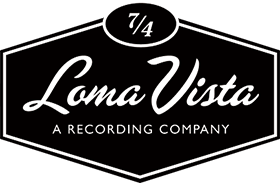Vundabar
Continuing to feed their reputation as one of the hardest-working bands in indie rock, fuzzed-out post-punk trio Vundabar have announced a new record, Surgery and Pleasure, out March 7 via Loma Vista Recordings. They’re sharing a new single “Spades” with a video today, and will kick off a spring 2025 tour with a hometown show in Boston on release day.
“Surgery And Pleasure is a more mature synthesis of all the stuff we’ve explored before,” Vundabar singer/guitarist Brandon Hagen says of the album’s fusion of old-school Vundabar energy with a newfound muscularity and slickness. “In a way it feels like a return. It’s grownup Vundabar.”
While Surgery And Pleasure was born from a difficult period of his life, Hagen didn’t want the record to wallow. “I was really ready to be done moaning,” he cracks. The music is rarely reflective or lachrymose. Instead, it’s one of Vundabar’s most visceral and urgent collections to date. Hagen sought an “extreme version of something very everyday and common.” He wrote many of the songs so that it could just as easily be about someone dying, the end of a relationship, or some unidentified something irrevocably breaking. All of it was interchangeable, leading to the same conclusion. “I was dealing with how to accept that change is inevitable,” Hagen explains. “These things can’t be fought. It’s about acceptance and empathy.”
New single ‘Spades’ explores these themes, “concerning the precarity of modern life,” Hagen says. “Something universally accepted as normal, a game of cards, takes on a more dire edge and becomes paranoia ridden as the stakes of the game become evident. We carry on playing in a state of semi denial as the air grows thinner. Reality becomes ever more tenuous and it’s unclear if a spade is a card or a shovel, unclear whether we should be dealing a hand or digging a hole.”
After years of self-releasing, Vundabar recently signed to esteemed label Loma Vista Recordings for their sixth full-length, joining the ranks of artists such as Soccer Mommy, Denzel Curry, Sleater Kinney, Manchester Orchestra, Killer Mike and Iggy Pop. They announced they would be joining the label last year with the release of their single and video ‘I Got Cracked’, followed by a second single and video, ‘Life Is a Movie’, both of which appear on Surgery and Pleasure.
Formed by Brandon Hagen (guitar, vocals) and Drew McDonald (drums), and later joined by Zack Abramo (bass), Vundabar have always been imbued with a fiercely independent spirit, their sound forged in mythical underground Brooklyn venues such as Silent Barn and Shea Stadium. Musically, they exist almost as a fever dream of many genres, melding arty post-punk, tangled math-rock, sun-dappled surf guitar, shimmering jangle-pop and grunge scuzz into sharp, compact songs that have netted them a wide fan base and a reputation for a killer live show.
